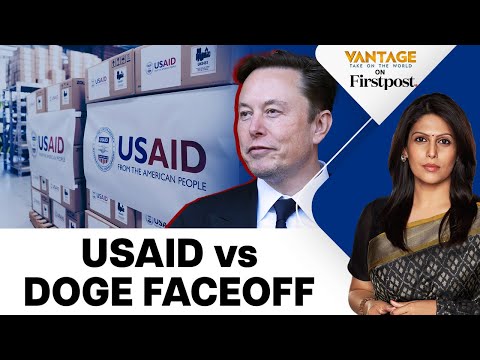- House and Senate Democrats are alarmed over the Treasury Department granting access to payment systems to individuals linked to Elon Musk.
- The Treasury’s payment systems are crucial, handling 90% of federal payments and over 1.2 billion transactions annually.
- Lawmakers, including Rep. Melanie Stansbury, express concern about the erosion of oversight in favor of private interests.
- Congress members were locked out of Treasury headquarters, which raises questions about transparency and accountability.
- Critics worry that Musk’s involvement could jeopardize essential payment systems like Social Security and Medicare.
- The American Federation of Government Employees has initiated a lawsuit against the access granted to DOGE.
- Senate Democrats propose united efforts to combat perceived threats to citizens’ privacy and governmental integrity.
In a shocking twist in government oversight, House and Senate Democrats are raising alarms after the Treasury Department granted access to its payment systems to individuals closely linked to Elon Musk. These systems manage a staggering 90% of federal payments, handling over 1.2 billion transactions yearly, and now, unelected private citizens are observing this vital data.
Rep. Melanie Stansbury expressed the outrage that many lawmakers felt, insisting that the oversight body, elected by the people, must not be sidelined while private citizens intrude upon the privacy of American taxpayers. Disturbingly, members of Congress found themselves locked out of Treasury headquarters, unable to gain the access they deemed essential.
A Treasury official clarified that the selected team members from the Department of Government Efficiency (DOGE) received “read-only” access for an efficiency assessment, akin to the permissions granted to auditors. Despite assurances of integrity, critics aren’t convinced. Senator Elizabeth Warren cautioned that Musk’s influence could threaten the payment systems that ensure Social Security and Medicare obligations are met.
While the American Federation of Government Employees has filed a lawsuit against DOGE’s access, the controversy raises critical concerns about national privacy. Union President Everett Kelly called the level of access an “unprecedented intrusion” into citizens’ private information.
As tensions flare, Senate Democrats stand united, vowing to fight against what they see as an encroachment on privacy and a power grab by corporate interests. The stakes are high as this battle unfolds—will the government remain accountable, or will private influence overstep its bounds? Stay informed, and protect your rights!
New Concerns Arise Over Government Access by Private Individuals
Overview
Recent developments have sparked significant concern as House and Senate Democrats expressed alarm over the Treasury Department granting “read-only” access to its payment systems to individuals linked closely to Elon Musk. This system, which oversees 90% of federal payments and manages over 1.2 billion transactions annually, raises serious questions about privacy, transparency, and the influence of private interests in government operations.
Key Insights
1. Scope of Access: The access provided to private individuals is described as part of an efficiency assessment, but critics argue that even limited access is inappropriate. Such a significant reach into taxpayer data is unprecedented and could set a concerning precedent for future government transparency.
2. Public Reaction and Legal Action: The American Federation of Government Employees has initiated a lawsuit against the Department of Government Efficiency (DOGE) to contest this action, labeling it an “unprecedented intrusion” on citizens’ privacy.
3. Potential Implications for Services: Senator Elizabeth Warren highlighted potential vulnerabilities in essential services like Social Security and Medicare, which rely on the integrity of these payment systems. The implications of private individuals having any form of access to such sensitive information are alarming.
Limitations and Challenges
– Trust Issues: Even with “read-only” assumptions, the presence of private individuals in such a crucial government domain raises concerns about potential misuse or misinterpretation of data.
– Lack of Oversight: Elected officials found themselves barred from accessing the Treasury headquarters, raising alarms over the transparency and accountability of this process.
Market Forecast
As the controversy unfolds, one can expect increased scrutiny of the Treasury and its operational protocols. The push for stricter regulations on who can access sensitive government data will likely gain momentum, with lawmakers advocating for enhanced protections to safeguard taxpayer information.
Frequently Asked Questions
1. What does “read-only” access entail?
– “Read-only” access means that the selected individuals can view data without the ability to modify it. However, critics argue that viewing such sensitive data should not be permissible for private citizens.
2. What are the potential impacts of this decision on federal payments?
– There could be significant implications for the integrity and security of federal payments, particularly those related to Social Security and Medicare, possibly leading to a public push for reform in oversight practices.
3. What actions are being taken by lawmakers regarding this issue?
– Senate Democrats have united in opposition to what they see as an invasion of privacy, planning to introduce measures to increase governmental oversight of sensitive data access by private individuals.
Conclusion
The grant of access to individuals linked to corporate interests in government financial systems raises essential questions about privacy, security, and the influence of private citizens in public affairs. As this issue continues to evolve, vigilance is vital to ensure that governmental accountability is upheld.
For more information on government financial systems and current news updates, you can visit the following link: U.S. Department of the Treasury.


















